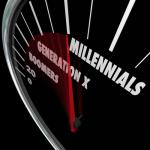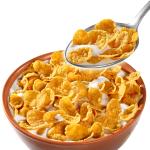A recent report [1] from Blue Cross Blue Shield (BCBS) casts both light and shadow on the current health status of the increasingly important replacement for the Boomers, the Millennials - individuals born between 1981-1996, approximately 73 milli
millennials
Do-gooders in America, typically of the Millennial variety, think of themselves as smarter, more worldly, and far better informed than you. They are woke. You are not.
Millennials don't have it easy, contrary to popular belief.
The overdose epidemic sweeping the nation is hitting some demographics harder than others. New data released by the CDC breaks down heroin overdose deaths by age.
Marketers have latched onto the Millennial generation (those aged 18-34) as though they were the source of all goodness.
Amid all the sobering reports, and studies, and analyses released each week about health and nutrition, every now and then it's nice to come across a story that's just light-hearted and fun.








